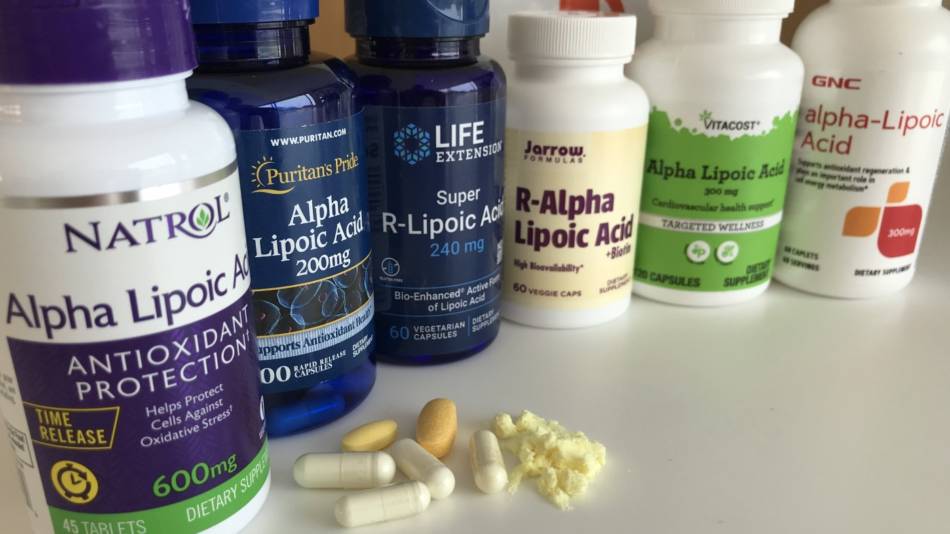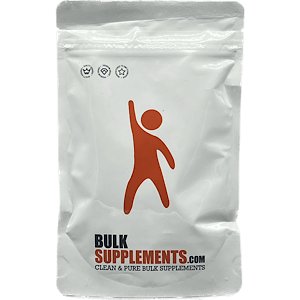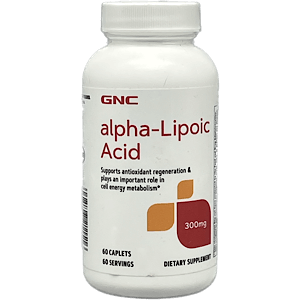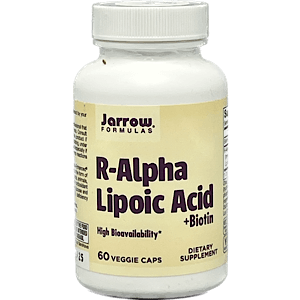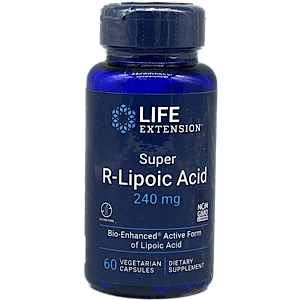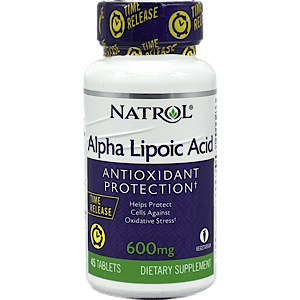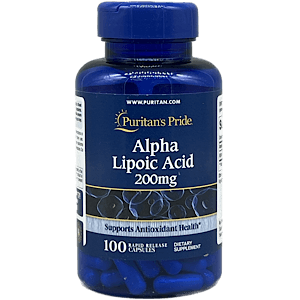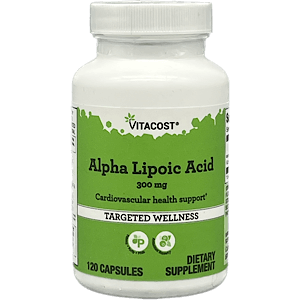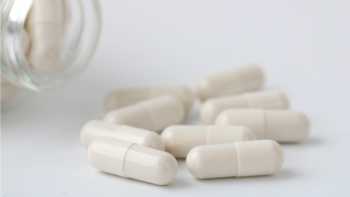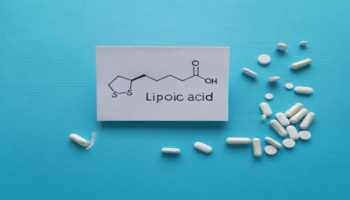+— 31 sources
In addition the results of its expert testing, ConsumerLab uses only high-quality, evidence based, information sources. These sources include peer-reviewed studies and information from agencies such as the FDA and USDA, and the National Academy of Medicine. On evolving topics, studies from pre-print journals may be sourced. All of our content is reviewed by medical doctors and doctoral-level experts in pharmacology, toxicology, and chemistry. We continually update and medically review our information to keep our content trustworthy, accurate, and reliable. The following sources are referenced in this article:
- Kilic, Biochem Mol Biol Int 1995
- Mijnhout, Int J Endocrinol 2012
- Gilron, Pain 2024
- Porasuphatana, Asia Pac J Clin Nutr 2012
- Fernandez-Galilea, J Lipid Res 2012
- Huerta, Obesity 2015
- Bobe, J Nutr 2020
- Hosseinpour-Arjmand, J Clin Pharm Ther 2019
- Ebrahimi-Mameghani, J Funct Foods 2024
- Shinto, J Alzheimers Dis 2014
- Carbone, Eur J Pain 2009
- Polanski, J Laryngol Otol 2013
- Seidman, Am J Otol 2000
- Quaranta, Acta Otorhinolaryngol Ital 2012
- Ranieri, Int J Immunopathol Pharmacol 2009
- Guo, Support Care Cancer 2014
- Loprinzi, J Clin Oncol 2020
- Esposito, Biomed Pharmacother 2021
- Beitner, Br J Derm 2003
- Nutraceuticals World 11/17/20
- Carlson, Altern Med Rev 2007
- Gleiter, Eur J Clin Pharmacol 1996
- Gu, Zhonghua Yi Xue Za Zhi 2010
- Derosa, Drug Des Devel Ther 2020
- Corazza, Contact Dermatitis 2023
- Leysen, Contact Dermatitis 2016
- Kitsios, Ann Intern Med Clin Cases 2024
- Turck, EFSA Journal 2021
- Segermann, Arzneimittelforschung 1991
- Zempleni, JN 1997
- Patrick, Altern Med Rev 2002
Summary
-
What is alpha-lipoic acid?
Alpha-lipoic acid (or lipoic acid) assists in converting glucose into energy (see What It Is). A healthy body naturally produces enough alpha-lipoic acid but supplementation may help in certain situations.
-
What does alpha-lipoic acid do?
Alpha-lipoic acid supplements may modestly improve insulin sensitivity and blood sugar control, as well as reduce symptoms of peripheral neuropathy in people with type 2 diabetes. It may also modestly increase weight and fat loss when combined with a low-calorie diet (see What It Does).
-
Which form of alpha-lipoic acid is best?
Supplements contain synthetic versions of the naturally occurring form of alpha-lipoic acid (the R-isomer) or, more commonly, a mixture of the R- and S-isomers. The R-isomer only isomer shown to be active of the two isomers. However, only mixed forms have been studied for efficacy and side-effects in clinical trials and are generally much less expensive than R-isomer-only products (see What to Consider When Buying).
-
What's the right dose of alpha-lipoic acid?
The typical dose used in treating diabetes, peripheral neuropathy associated with diabetes, and cardiac autonomic neuropathy is 200 to 400 mg, taken 3 times daily (for a total daily dose ranging from 600 mg to 1,200 mg). For weight loss, 100 mg alpha-lipoic acid (taken three times per day with meals), along with a reduced-calorie diet, has shown some benefit. For use as a general antioxidant, a lower dose (20 to 50 mg daily) is commonly recommended (although there is no evidence this offers any health benefit). You may be able to halve the dose when using the R-isomer-only form (see What to Consider When Using).

Which is the best alpha-lipoic acid supplement?
Many products passed our tests of quality (see What CL Found). Among Approved products, ConsumerLab.com identified two as its Top Picks.-
What are the side-effects of alpha-lipoic acid?
Side effects of alpha-lipoic acid such as skin rash and nausea have been reported. Alpha-lipoic acid may also contribute to acid reflux, as it is an acid. It may also cause a strong urine odor. Because alpha-lipoic acid may help control blood sugar in diabetics, adjustments may be needed to anti-diabetic medication when using alpha-lipoic acid. Alpha-lipoic acid may interfere with thyroid function, medication and diagnostic tests. Although rare, alpha-lipoic acid may cause insulin autoimmunity (see Concerns and Cautions).
You must
be a ConsumerLab.com member to get the full test results along with ConsumerLab.com's recommendations and quality ratings. You'll get results for six alpha-lipoic acid selected for testing by ConsumerLab.com and one additional supplement that passed the same testing through CL's voluntary Quality Certification Program.
In this comprehensive review, you'll discover:

 The best quality alpha-lipoic acid supplements and which passed or failed testing
The best quality alpha-lipoic acid supplements and which passed or failed testing ConsumerLab's Top Picks among alpha-lipoic acid supplements based on quality, dosage, and value
ConsumerLab's Top Picks among alpha-lipoic acid supplements based on quality, dosage, and value The clinical evidence for and against alpha-lipoic acid for improving insulin sensitivity and blood sugar control, reducing nerve pain, weight loss, and other uses
The clinical evidence for and against alpha-lipoic acid for improving insulin sensitivity and blood sugar control, reducing nerve pain, weight loss, and other uses
 The dose of alpha-lipoic acid for specific uses
The dose of alpha-lipoic acid for specific uses  How the R-isomer form of alpha-lipoic acid differs from the mixed form (R- and S-isomers) and whether one form is better than the other
How the R-isomer form of alpha-lipoic acid differs from the mixed form (R- and S-isomers) and whether one form is better than the other Cautions when using alpha-lipoic acid, including side-effects, drug interactions, and interference with thyroid function, treatment, and tests (such as T3 and TSH)
Cautions when using alpha-lipoic acid, including side-effects, drug interactions, and interference with thyroid function, treatment, and tests (such as T3 and TSH)
As a ConsumerLab.com member, you may print a copy of this report for your personal use.
You can access a special print version by clicking the "Print" icon in the upper right corner of this report.
You can then use your web browser's print functions to print the whole report or just selected pages.
You may also email or post a link to this report using the web address above.
Non-members using the link will see a free summary and can join to view the full report.
Other means of copying or distributing this report, in part or full, are not permitted.
If you are sight-impaired and your computer is having trouble converting the text in this report to speech,
contact us for assistance at Membership@ConsumerLab.com or by
phone at 914-722-9149.

